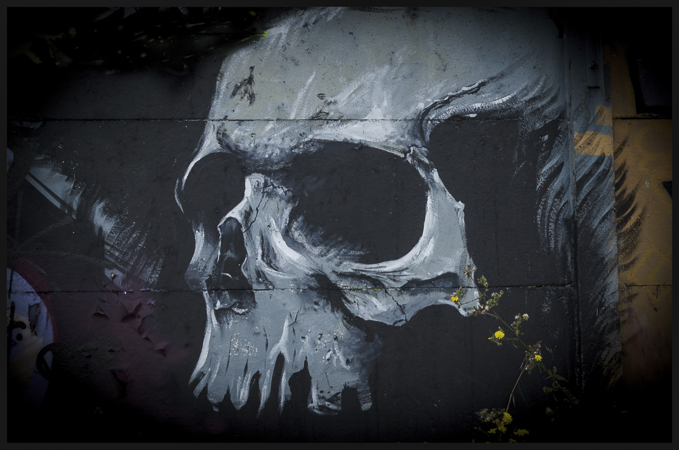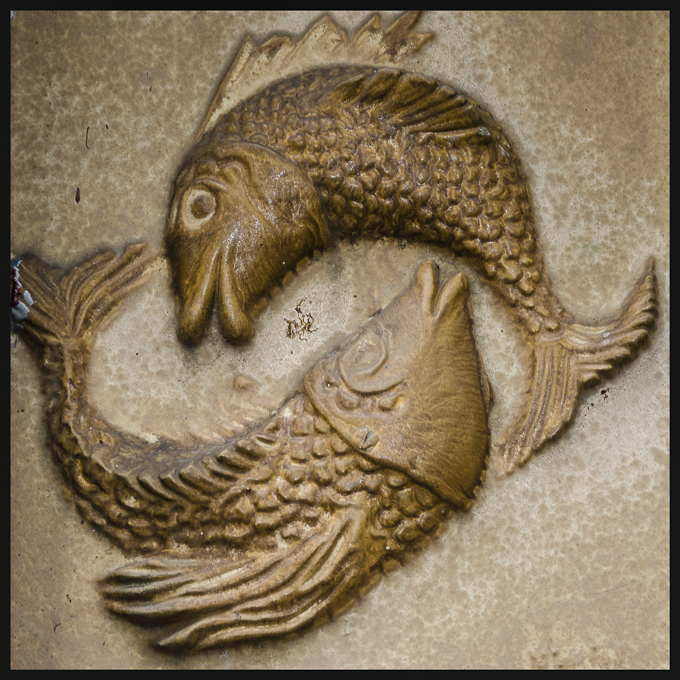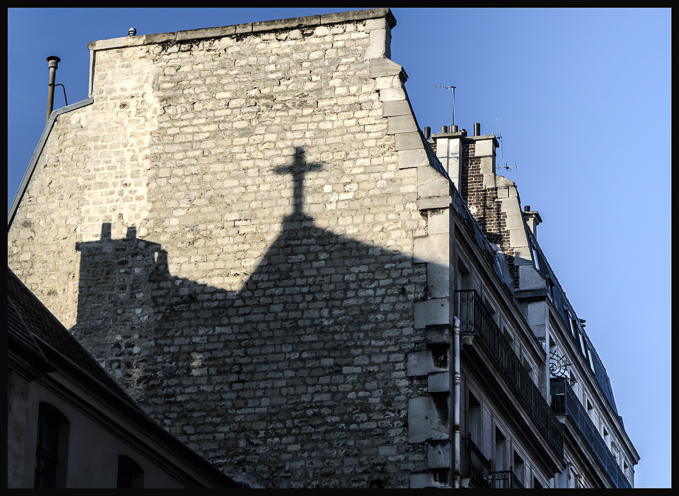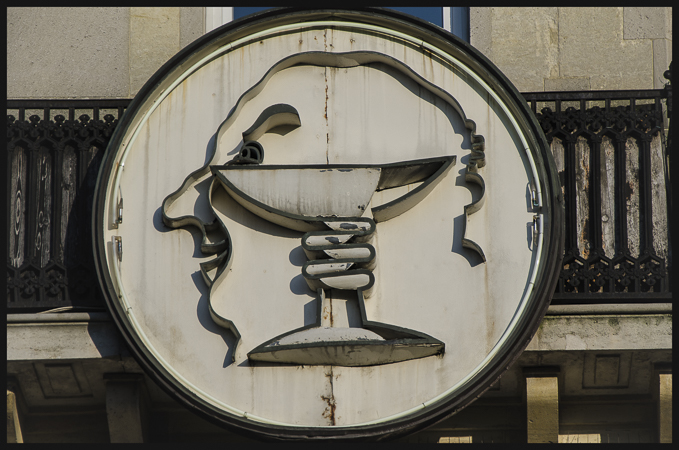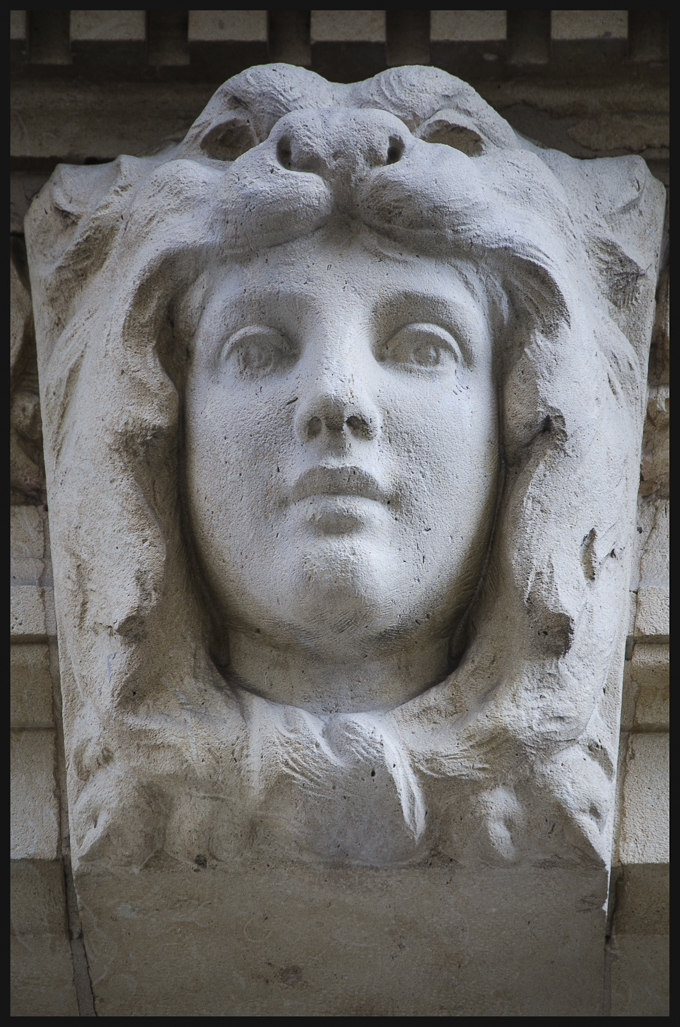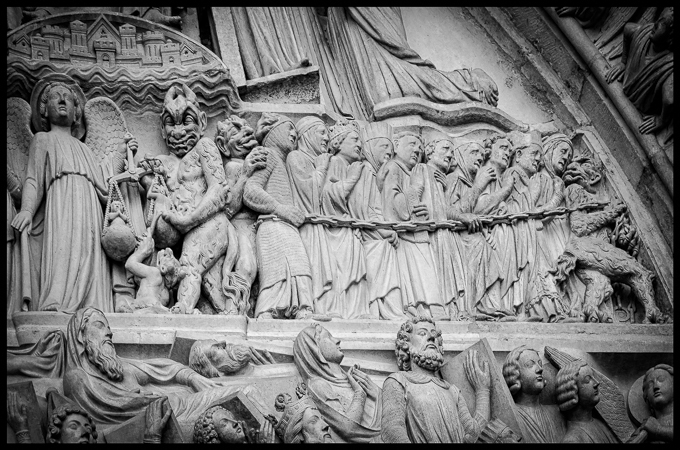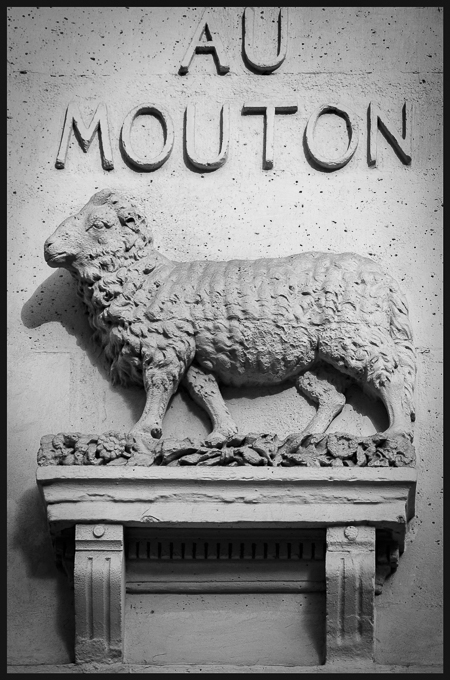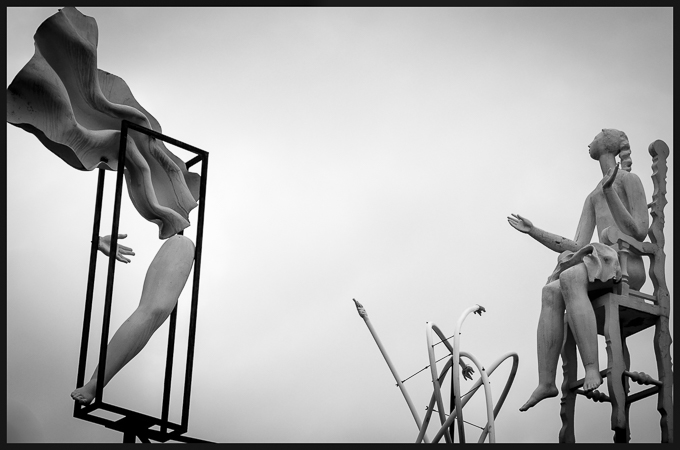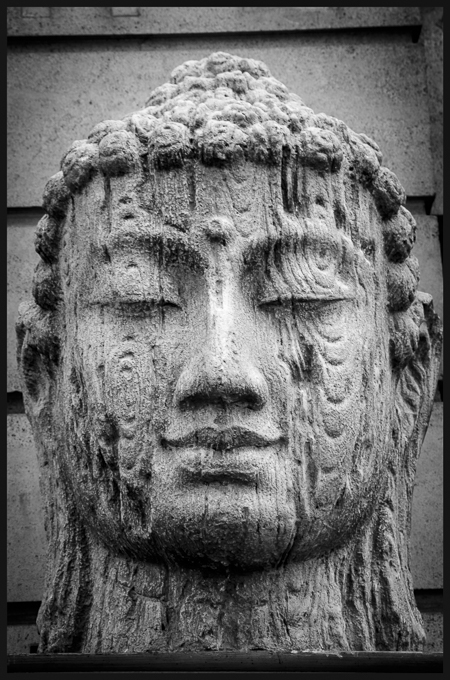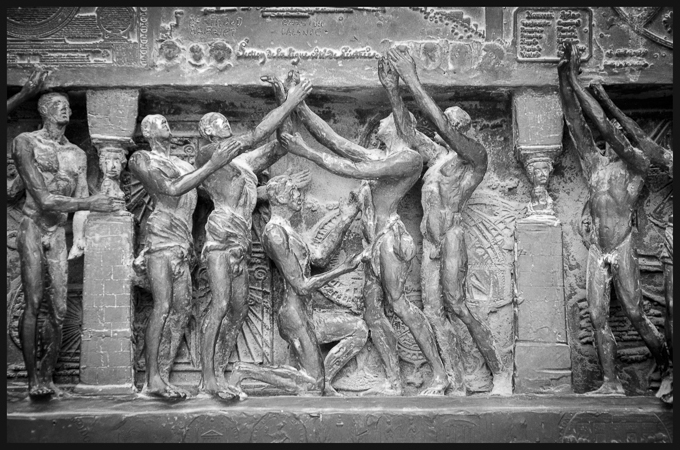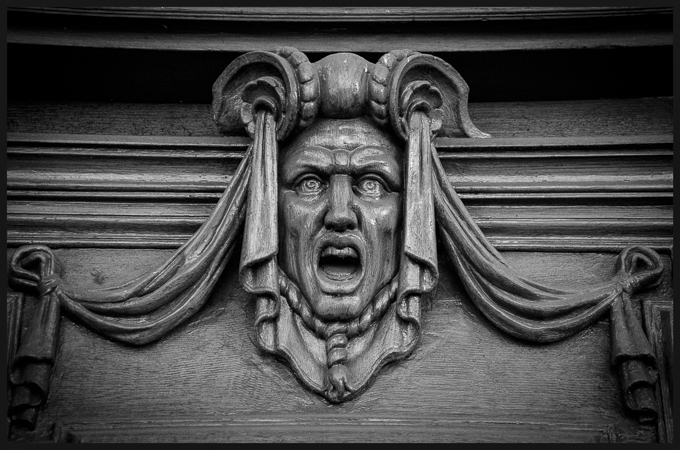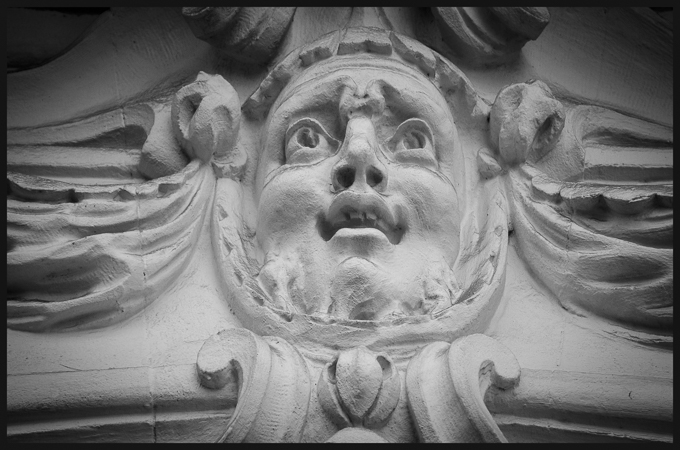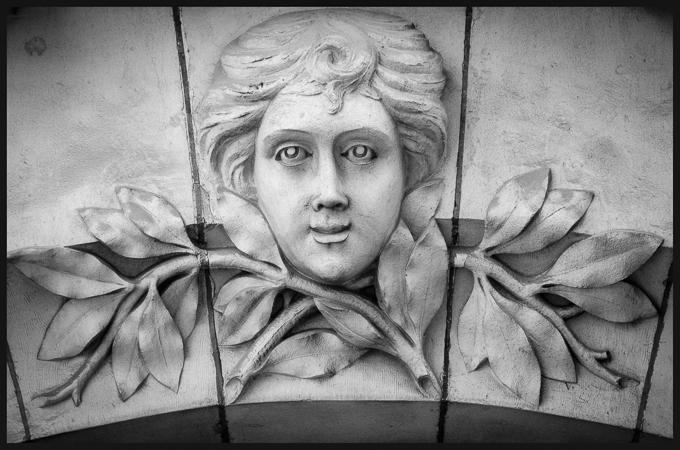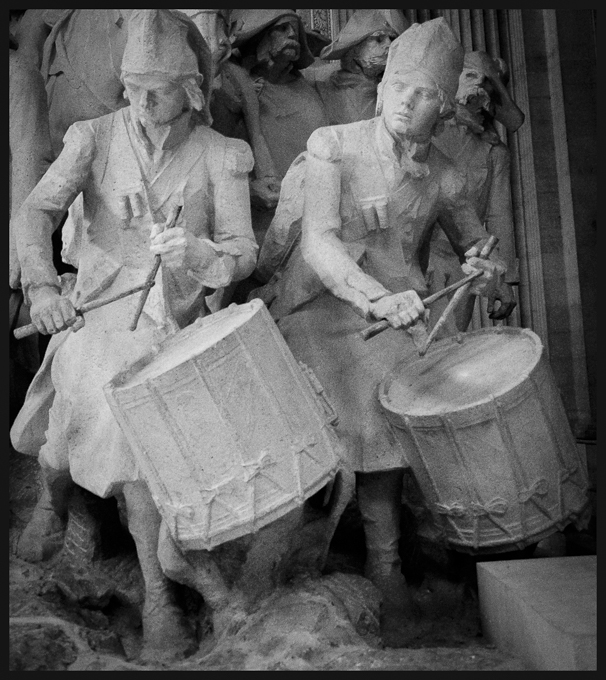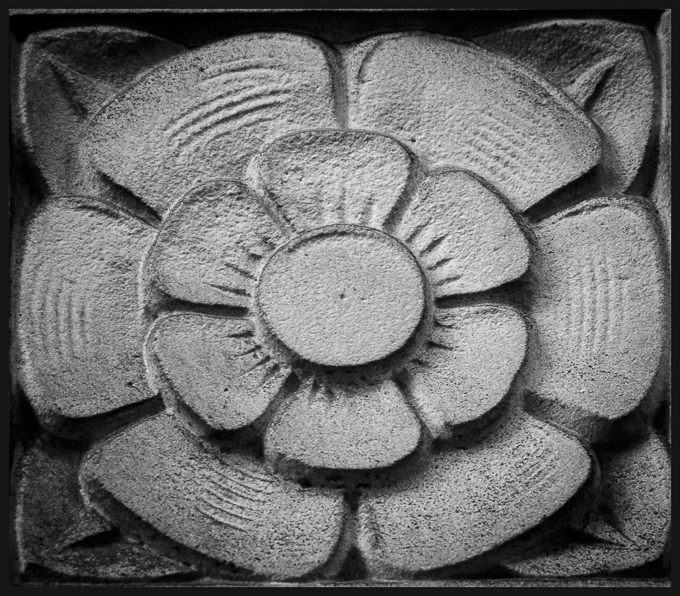Back in the U.S.A.: Surprises!
 11.16.2014
11.16.2014

- How scuzzy Penn Station in NYC is, not a single restaurant with inviting food or places to sit! Cappuccino to die from, not for; and how do you ruin a bagel?
- Emily, Richard’s niece, over lunch at Union Oyster House in Boston (where Daniel Webster ate six plates of oysters a day and President Kennedy dined). How can a 19-year-old girl be this focused, grounded, present?
- Hawk! A lone hawk on a bare winter branch to the right of the bus just outside Amherst, (my father’s emblem, his totem: the thread of this journey leading back to him).

- Never have trees seemed so alive to me, living beings breathing all around us in their coats of mauve, burgundy, scarlet, orange, brown, goldenrod, yellow! I remember standing with Dad here on the Amherst Commons under this same flaming tree in ’93.
- Walking with Richard, Ron (Rosbottom, the Amherst professor who invited Richard to lecture on Paris street art) and Betty (Rosbottom, the cookbook writer) in Amherst, I’m surprised that everyone is speaking English!
- The magic of Richard’s lecture in a red-carpeted amphitheater: three and a half years as a photographer and student of Paris street art and history, and he’s mastered both!
- I’ve never seen brussels sprouts attached to a stalk as thick as my wrist the way my aunt Susie serves them. The taste of pork for the first time in years. The sweet comfort of family talk with Susie and cousin Kit and his wife, Gayle.

- The former frat house where my father met my mother: littered with beer cans, scruffy, post-Halloween party. I suddenly realize he was only 18, 19 years old!

- The bannister one can see from the entrance window that my mother slid down one night (she was really that frisky?) that now has a newel post half way down—to stop Betty Heimark from raising hell?
That a young woman, Maia, answers our knock and invites us to come in and have a look around. She leads me upstairs where all the rooms have images of seal pups on the doors, each with different names. Sealye Hall, no longer Alpha Delta Phi, fraternities banned last year, as my trustee father long thought they should be.
The rooms upstairs are tiny, narrow cells, big enough for a bed, desk, chair. The students are expected to be studious monks, but there are traces of another life downstairs.

- Julia, a student in Ron’s Imagining the European City class, offers after Richard's lecture to give us a tour of the Mount Holyoke campus, where we’ve come to trace the thread of my parents’ lives. She leads us to three waterfalls near bridges. The first is too accessible. The second bridge did not exist in the ‘40s. The third is the most private, a lover’s lane along the wildest waterfall. Here, we’re sure, is where my father proposed to my mother.
It seems amazing to me that a couple might find true love, so deeply suited for a life together, at such a tender age.

- That my mother, here in the 1942 yearbook in the library, was in the May court, and not the May Queen. She was surely the most beautiful with that sweep of Veronica Lake hair, full Norwegian lips, character and intelligence in her eyes!
- That the Asian language we hear in the back of the bus belongs to Nepalese students at Amherst, a language we’ve never heard. Long black hair, these women are light in spirit, confident, breezy.
- That a college friend of Richard’s from the ‘60s would drive all the way from Newport, R.I. to Amherst, Massachusetts to stay overnight there, and drive us the next morning to Brooklyn! Is she in love with him? Getting to know her, I see that she’s just a super generous soul.
- As we leave Amherst to drive to Williamsburg, New York—there! A lone hawk on a bare winter tree.

- That our Williamsburg landlady, Iris, has two big coils of hair at her ears like a Navajo maiden! That a big poster of her hangs above the bed, naked with flamenco hair and pose, with two strategically placed red fans! That the bedspread features a giant tiger, brown and yellow striped, with pink nose! That 36 silver swimming trophies line the shelf at the head of the bed!
That reading Iris’s novel combined with an invitation from my friend, Cassandra, sparks a new idea, and I begin writing each morning here in Williamsburg.
- Meeting Mona’s two-year-old twins: what a fabulous mother she is, organized, disciplined, gay! How happy she and Gabriel are in Brooklyn!
- The NYC Metro, its grime and darkness, how slow the trains, how crowded, how badly marked the stations! We can’t help but compare them to Paris.
- How much NYC reminds me of Amsterdam, the Dutch roots, practical, industrious, extraverted. How consistent spirit of place is: NYC, an Artemis city, tough, armored, status-seeking, just as it was when I lived here in the late ‘70s.

- Brick buildings: I didn’t like them years ago in Cambridge and NYC, don’t like them now. How enduring is taste.
- Walking one night on Bedford Avenue in Williamsburg, I discover a 24-hour health food store where a calm Nepalese man presides! In America, rock music rocks—so many memories in each song!
 Street art © 2014 Adam Cost
Street art © 2014 Adam Cost
- In Williamsburg: young "hipsters" with patriarchal beards and short hair, and some with mushroom-like growths on top: a more retrograde, unattractive look I can’t imagine! How can you call a patriarchal look “hip”? The two are an oxymoron.

- Richard and I set out one day to walk across the Williamsburg Bridge to Manhattan. There at the entrance, a sign on the pavement tells us: no pedestrians, bicyclists only. Richard questions a bearded biker.
He says, “No, it’s fine. Just stay to the right. You know, farther on you’ll cross to the left and it’ll be pedestrian only.”
Richard says, “No, I didn’t know that.”
“That’s what I’m trying to tell you!” snaps the guy in that brusque NYC way, startling us both.
The noise of cars and trucks on the bridge is astonishing! It’s a warm day. My side hurts. I drink some water, and then feel fine. The NYC skyline is striking in a hard glittering way.
Halfway across, the man on the bicycle passes us going the other way. He waves, stops to talk. Four kids, a wife who’s a dentist, maybe she can fix Richard’s toothache? But the challenge is more complex, must wait till we get home to Paris. Luckily, Richard has enough prescription codeine for three weeks.

- We walk to Greenwich Village, cross Washington Square, find 14 Gay Street, the basement apartment where Sam and Betty swear I was conceived. I wave thank you to my father and mother.
- Two days later in Manhattan, we duck into a Bank of America lobby to wait out the rain, and this man strides by, grinning and waving! Instead of a helmet, he now wears a yarmulke. What are the chances of running into this stranger three times in three days? And then as we wait by a huge red statue for a lunch date with Richard’s cousin, Paul, the no-longer-gruff stranger comes up and asks us if we’re capitalists or socialists. Socialists, we say, but French socialism hurts entrepreneurs and American capitalism hurts its citizens; we’d prefer a system that values both. He, Avi, is a hedge fund trader. He offers to give us a tour of the Stock Exchange. We haven’t time, but we exchange cards.
 Picasso. Les images peuvent être soumises à des droits d'auteur.
Picasso. Les images peuvent être soumises à des droits d'auteur.
- The painters I loved most at 19 years old, years later, here in MOMA, are the ones I still love: de Chirico, Ernst, Dali, Duchamp, Kahlo, Matisse, Van Gogh, Picasso; the ones I didn’t love then, like Cézanne with his baby shit colors, still do nothing for me. A show of Matisse cutouts: Joy! Joy!
- On the crowded Metro, a man facing me has a red face dripping with sweat, sweat staining his shirt. He stares. Something odd going on. The train is delayed, says the well-trained voice of an actor over the p. a.
“Is this the Four Line?” Sweat Man exclaims to the crowd.
“No, the Five,” a young Latina says.
He gets off the train, stands facing our open door, says, “Thank you, Mother,” and grins. “Thank you, Mother,” and grins. “Thank you, Mother,” and grins. No one looks twice at him!
 Van Gogh's palette, Van Gogh Museum, Amsterdam
Van Gogh's palette, Van Gogh Museum, Amsterdam
- In Iris’s apartment, I read a novel, Van Gogh’s Bad Café, by Frederic Tuten. An extraordinary visionary feat: Ursula, a woman photographer, moves through space and time between two lovers: Van Gogh in late-nineteenth-century Auvers-sur-Oise, France and Louis in 1990s NYC. The story opens into moments of transcendent beauty, reminiscent of William Blake. And then we meet Frederic for drinks, and he is luminous like his novel.
- I wondered if I’d be tempted by Brooklyn, find it more appealing than Paris, but no, not even close. Paris is Aphrodite, the goddess to whom we feel closest. Returning to Paris, this place—only Paris!—feels like home.

 Amherst,
Amherst,  Brooklyn,
Brooklyn,  Kitchells,
Kitchells,  Mt. Holyoke,
Mt. Holyoke,  New York,
New York,  love,
love,  street art in
street art in  World Affairs
World Affairs 


